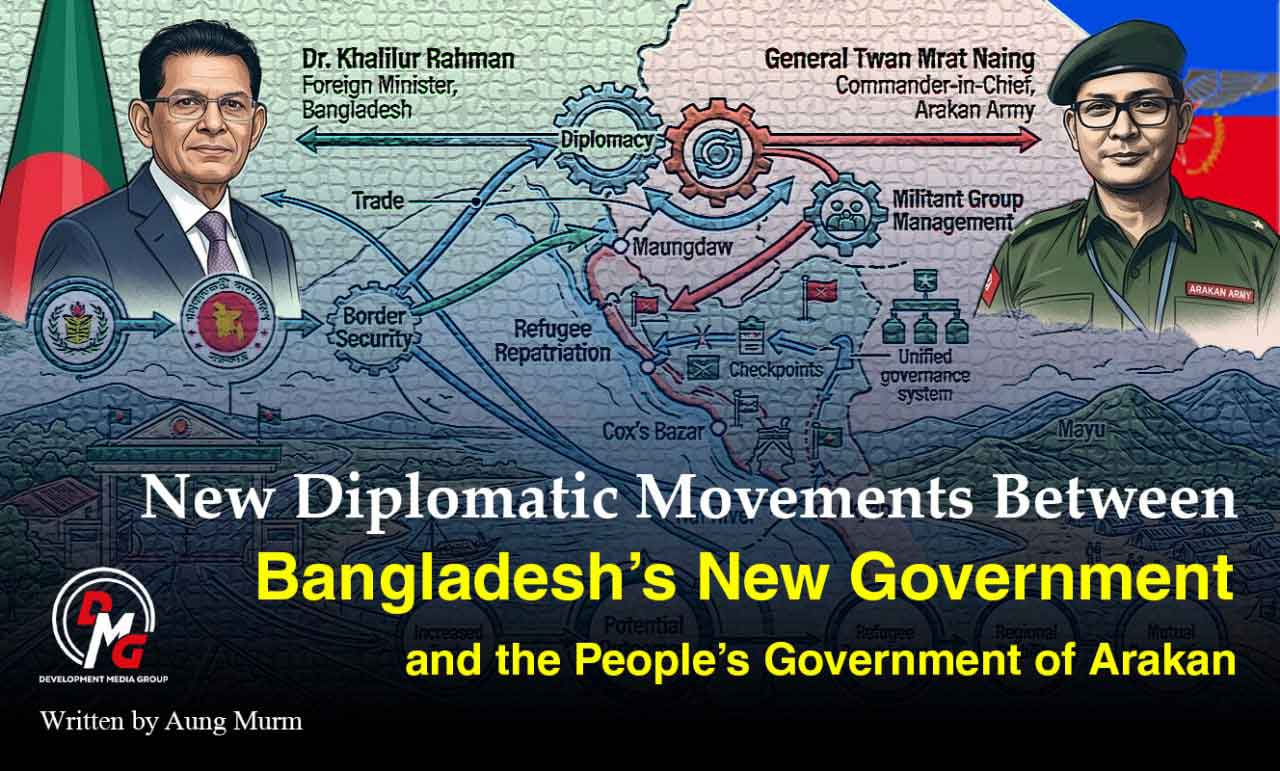- Iran crisis sparks fuel price hikes in AA-held areas
- Arakan residents gripped by fear as junta airstrikes intensify
- Junta personnel, police and families evacuate Sittwe for mainland Myanmar
- Muslim armed groups killed 162 civilians in two years in northern Arakan: HDCO report
- Arakanese migrants in Middle East on high alert amid escalating Iran conflict
Deterring apathy for an uncertain but critical election in Arakan State
The activities of political parties have increasingly been populating the news feeds of social media users since the 2020 election date was announced last month. Despite the flurry of online activity, there are indications that this general election may attract the lowest interest of any of the three polls to be held since the 2008 Constitution was enacted. This is admittedly speculation, but DMG argues that it is informed speculation, based on sentiment on the ground in Arakan State.
02 Oct 2020
Editorial | DMG
The activities of political parties have increasingly been populating the news feeds of social media users since the 2020 election date was announced last month. Despite the flurry of online activity, there are indications that this general election may attract the lowest interest of any of the three polls to be held since the 2008 Constitution was enacted. This is admittedly speculation, but DMG argues that it is informed speculation, based on sentiment on the ground in Arakan State.
Voter interest was high in 2010, if for no other reason than sheer curiosity about the semi-democratic experiment that was unfolding via the polls that year, after decades of military rule.
Five years later, with the National League for Democracy’s full-fledged entry into the electoral arena and a bevy of new ethnic political parties to choose from, hopes for “change” were in the air. Voter turnout was an impressive 70% and the NLD won a sweeping election victory.
Part of the expectation post-2015 was that the triumph of so-called democratic forces with the NLD at the helm would lead to constitutional reform and progress toward ending the country’s decades-long civil war.
But the period from 2016 to 2020 has not gone as smoothly as the 2011-2016 term of the preceding, military-backed government.
Stories about the plight of Muslims in Arakan State have shot to the top of international news coverage about Myanmar, and as a result the country has faced intense international pressures, including trial before the International Court of Justice. Foreign companies have become hesitant to invest in Myanmar.
There remains no national equality nor authority granted to local governments in non-Bamar states. Among the country’s ethnic minorities, increasingly the belief is that there is little difference between the previous military and military-backed governments, and their NLD successor.
Under the current administration, Arakan State has faced the worst of it. The sounds of weapons are heard in Arakan State where there was no gunfire before. Civilian casualties continue to climb. The civil war that in previous years weighed most heavily on the peoples of Kayin, Kachin or Shan states has come to Arakan State with fury.
Radicalisation often stems from a breakdown of political processes, or crops up when politics has failed repeatedly to deliver on the aspirations of the people. This November and in the months of political wrangling that will follow, it is crucial that the incumbent administration and the new government, whatever form it takes, treat all of the country’s political stakeholders as dialogue partners.
Political parties in Arakan State and many members of the public still regard the upcoming election as a road toward national equality and self-determination. Their activities continue to reflect that belief. Even the Arakan Army (AA), which is fighting for the self-determination of Arakan State and its people, still sees the election as a way of seeking solutions to problems and grievances through political means.
But for that faith in the political process to be fully validated, it is necessary that elections be held in all Arakan State constituencies. This is the duty of the government, the military and the ethnic armed organisations in the region.
Many political parties and political observers cynically say it is inevitable that elections will be cancelled for seats that are likely to be won by candidates who are not from the ruling party, with “security reasons” in the conflict-ridden state being cited to justify the decision. All officials concerned should be aware of the fact that this widespread suspicion may push the Arakanese people closer to supporting armed conflict if the vote, or rather lack thereof, plays out as they are anticipating.
Despite the challenging environment in Arakan State, voting should be held to the maximum extent possible this November. Prospects for national reconciliation and an end to the fighting in western Myanmar may depend on it.
Related Post : ‘Safety first’ for an election amid war, a pandemic and voter apathy








.jpg)











